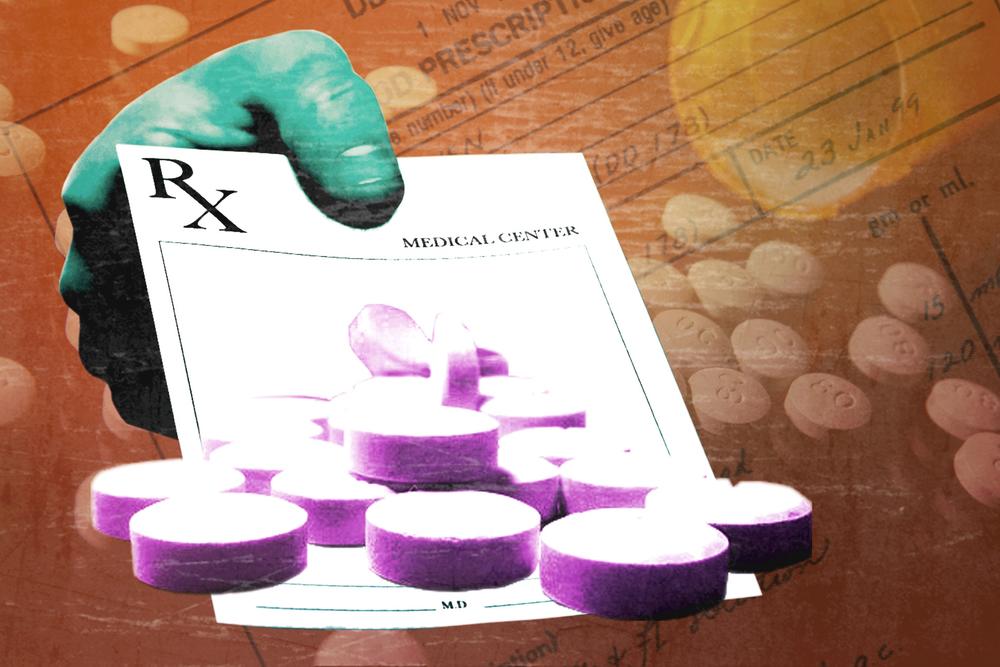Section Branding
Header Content
Pain Versus Addiction: A Tough Decision For Rural Georgia
Primary Content
It’s was a slow Thursday morning at Optim Medical Center-Screven in Sylvania, a small town about 60 miles northwest of Savannah.
Only a handful of patients had come into the emergency room in the past few hours.
“Like in any ER, it’s feast or famine: you’re going to have a great day or either you’re going have a very busy day,” said Tina Hood, a physician's assistant who works at the hospital.
Doctors are scarce in rural Georgia communities, so physician's assistants and nurses provide much of the care in hospitals like this one, when they have the means to do so.
Just under 10 percent of people who come to Optim’s emergency room are sent to larger facilities in cities like Savannah and Statesboro.
And Hood says it’s been harder to meet patients’ needs since physician's assistants lost an important tool: hydrocodone products.
“You have to address the issue of the opioid crisis, but then again, you do have patients that have acute problems and acute pain that need to be addressed,” Hood said.
In 2014, the Drug Enforcement Agency put hydrocodone products like Lortab and Vicodin in a class with opioids like morphine, and physician's assistants lost the ability to prescribe them.
Now, Hood sees patients with kidney stones and bone fractures--conditions where she says pain management is a crucial part of treatment--and she can’t prescribe them the medications she used to.
“For me, it boils down to a very simple thing: we’re obligated to provide our emergency room personnel with what they need in order to care for the patient,” said Robert Sellers, CEO of Optim Medical Center-Screven.
Georgia is facing a rural healthcare crisis: five rural hospitals closed their doors between 2013 and 2016, and many more face potential financial collapse.
It’s a reality Sellers knows all too well. Until recently, he managed a hospital in neighboring Jenkins County. That facility was slated to close before another hospital in the area agreed to buy it.
Sellers says hospitals need patients to stay financially healthy, but unhappy patients stop coming.
He estimates a handful each month move on to larger hospitals because they know they can’t get hydrocodone at his facility.
“You’re just going to skip this step and go on to another facility 30 miles away that you know that have the resources that you need,” he said.
This problem was almost solved earlier this year. The Georgia legislature almost unanimously passed a bill allowing physician's assistants to prescribe limited amounts of hydrocodone.
But Governor Nathan Deal vetoed the measure, arguing more prescribers could lead to more opioid abuse.
Representative Deborah Silcox (R-Sandy Springs) was one of the few lawmakers to vote against the bill.
“I just think that it’s critical that we stem the tide of the number of prescriptions being written, and I think to the degree that we can control that, that it’s better policy for Georgia,” she said.
Silcox also says she’s not trying to make it harder for rural Georgians to get the care they need.
“We’ve got to change this attitude that: ‘All pain is bad! We have to eliminate all pain!’” said Jim Langford, who was also against the bill.
He runs the Georgia Prevention Project, a non-profit working to curb substance abuse.
This year, the governor approved a trio of laws aimed at curbing the opioid epidemic. One measure mandates stricter rules for how doctors report opioid prescriptions.
Langford says Georgia should give those rules time to take effect before adding thousands more prescribers to the system.
“Maybe in a year or two, maybe we can come back to that issue. Right now, I think what we’ve got to do is just get control of what’s happening,” he said.
The fight over allowing physician's assistants to prescribe hydrocodone gets to the heart of a major question at the center of the opioid epidemic.
“There are patients who show up for treatment and are in pain. And the question we have is how do you treat that pain?” asked Jason Hockenberry, who studies public health policy at Emory University.
He says there’s some basic logic to the argument that greater access to opioid pain medication could exacerbate the opioid addiction crisis.
“You can imagine that the more prescribers that are out there and available, the people that are addicted to these medications would have more opportunities to shop around and find what I’d call a 'soft spot' in the system,” he said.
But Hockenberry cautions there’s simply not enough data to back up that argument. That makes problems like these seem intractable, especially to physician's assistants like Tina Hood.
She says she knows there’s an opioid crisis, and she doesn’t want to become a part of it. But she also wants the tools to help her patients in pain.
“I’ve had patients that have had multiple facial bone fractures,” she said. “They’re obviously in pain, and it makes you very humble to know you can’t provide them with the care that they need.”


